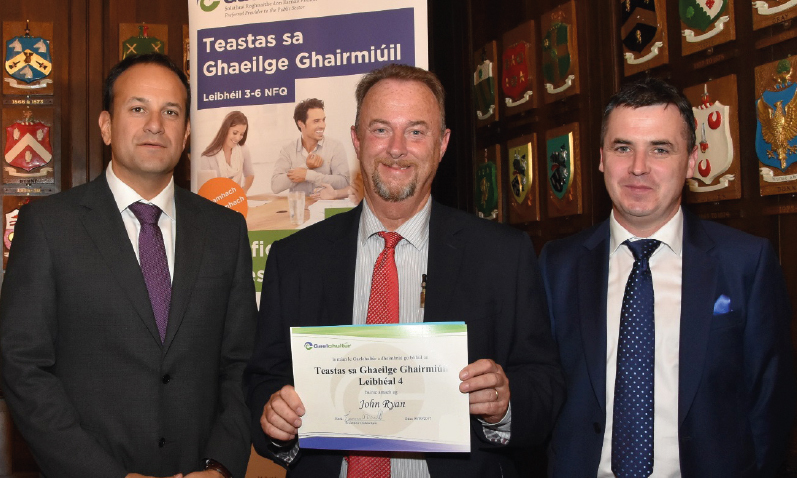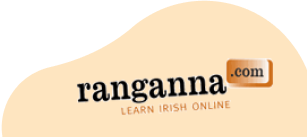
An Introduction to the Irish Language
Description
We recognise the increasing importance that multiculturalism and diversity play in creating a collaborative and inclusive workplace. Our goal is to celebrate the Irish language and its culture in this engaging, welcoming and interactive 2-hour workshop.
In December 2021, the Irish language gained full official working status in the institutions of the European Union. This international recognition is a significant achievement for the language and, by placing it on equal footing with other European languages, it emphasises the value and importance of the language both in Ireland and internationally. The Irish language is, therefore, a vibrant, living and functional language and we would like to introduce even more people to it.
Created by Gaelchultúr, this workshop welcomes people from all backgrounds. It caters to those who studied some Irish at school, perhaps a good number of years ago, and those who have no previous experience with the language. It is an inspirational two-hour programme designed to promote and celebrate the Irish language and its culture in companies and organisations across Ireland.
In addition to the live workshop, all participants will be provided with a 3-month subscription at an appropriate level to Gaelchultúr’s e-learning platform www.ranganna.com (worth €45 p/person). Ranganna.com is an immersive learning resource full of virtual lessons, audio and video files and interactive exercises so that participants can develop their Irish language skills independently and at their own pace for three months following their workshop.
What value will the workshop add to your workplace?
The aim of this workshop is to create an engaging and educational space for staff members to be (re)introduced to the Irish language and the rich culture associated with it. The workshop will focus on the following three aspects of the Irish language:
1. Irish-Language History, Culture and Awareness
This first session provides a brief overview of the Irish language’s rich history and its inspiring revival. Participants will also receive an insight into the culture associated with the Irish language.
2. Irish in the workplace
Session two focuses on practical tips and support for companies and employees who wish to enhance the use of the language in the workplace during Seachtain na Gaeilge, and beyond.
Recognising that most companies in Ireland boast a multicultural workforce, this session aims to enable staff members, especially those who did not grow up in Ireland, to correctly pronounce titles and official terminology relating to Irish society and current affairs.
Participants will then be taught some simple phrases to help them greet colleagues or customers through Irish. They will be provided with simple everyday phrases which they can use across all platforms of communication; face-to-face, on the phone and at the beginning and end of an email, and which will help them promote the Irish language in their workplace.
3. Irish as a living language
The final session discusses Irish as a contemporary language, a language that can be spoken by nearly 1.8 million people in the country and used by over 73,000 people as their primary language of communication.
Participants will be provided with practical tips on how to access and utilise Irish language tools online so that they may continue to enhance their knowledge of the language and its culture after the workshop has ended.
Participants will then be placed in small conversation groups where they can practice what they learnt during the workshop with their colleagues.
For more information about organising this workshop in your place of work please contact fios@gaelchultur.com.
Our teaching approach
Gaelchultúr has developed comprehensive syllabuses and every class at every level follows these syllabuses.
The communicative approach to language teaching is used by Gaelchultúr’s teachers, giving learners the opportunity to play an active part in each class.
A strong emphasis is placed on group and pair work and learners therefore have a chance to practise what they’ve been taught. The main focus is on speaking and listening in all classes (with the exception of Cruinneas sa Ghaeilge), but reading and writing activities also feature.
Learn more about usCeisteanna Coitianta
Terms and Conditions
- Course fees may be refunded in full to a learner up to five working days prior to the commencement of the course. The refund must by requested by contacting Gaelchultúr’s staff by email or by phone. (Our contact details can be found here.)
- If, following the first class, the student decides that he/she would like to discontinue the course, 60% of the total fee will be refunded to him/her. Thereafter, no refund will be made to the student.
- Gaelchultúr Teoranta has the right to cancel a class or to amalgamate classes.
- If it is necessary to cancel a class, every effort will be made to place the participants in another class or to register them for an online course. A full refund will be made to the customer if these options do not suit him/her.
- A student may defer his/her registration only once. If he/she wishes to defer registration, he/she must notify Gaelchultúr’s staff of this by week three of the course. No refund will be made to the student if he/she does not accept a place on the next course he/she is due to attend.
- Gaelchultúr will accept no responsibility in the event that a student registers at the wrong level. We advise our students to do our online Irish test or to seek our advice to ensure that they are undertaking the correct level.
- If a student wants to move to another level, we cannot guarantee that a space will be available for him/her at that level. Should a space be available, Gaelchultúr will charge a €10 administration fee for making the change. A change may only be made to another level following the first class.
- Course fees must be paid in full prior to commencement of the course. Attendance on a course is subject to full payment of fees.


